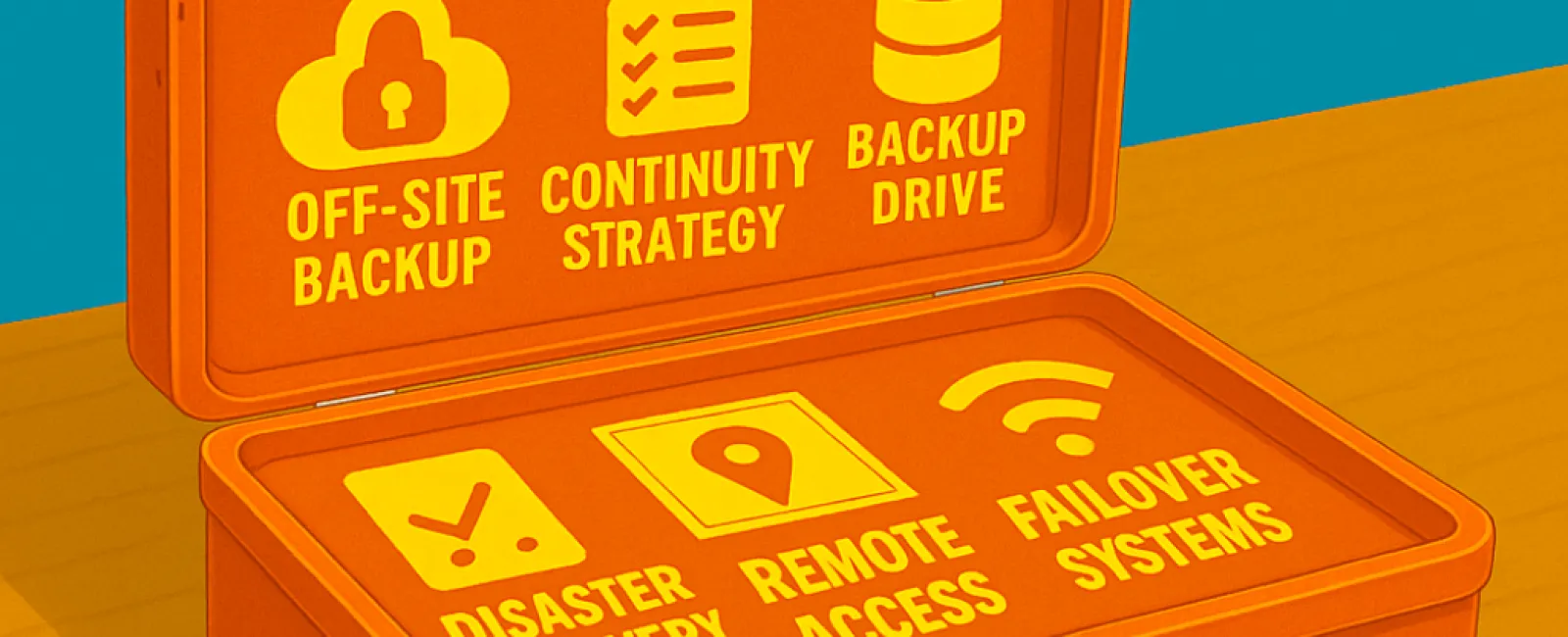July 28, 2025
Unexpected power failures, cyber threats, equipment malfunctions, and natural calamities often strike without warning, posing severe risks to small businesses. Many believe that simply having backups is sufficient, but restoring a file doesn't guarantee uninterrupted operations. If your systems are inaccessible, remote work is unsupported, or communication with your team and clients breaks down, even brief interruptions can cause lasting damage. Your IT partner must equip you not just with backups but a comprehensive strategy to ensure your business stays fully functional through any crisis.
Backups Alone Won't Cut It — You Need Robust Continuity Planning
Backups are vital, no doubt. But they represent only one piece of the puzzle. What truly safeguards your business is a business continuity plan—a forward-thinking approach designed to keep your operations running smoothly during and after disruptions.
When systems crash, files become unreachable, or your workplace is compromised, relying solely on local backups is inadequate. Without a swift recovery plan, your business faces significant risks including lost revenue, damaged reputation, and regulatory penalties.
Understanding the Critical Difference: Backups vs. Business Continuity
Many businesses falter by confusing these concepts:
● Backups enable data restoration.
● Continuity ensures your business remains operational regardless of the situation.
An effective continuity plan addresses vital questions such as:
● What is our recovery time objective?
● Where will employees work if the office is inaccessible?
● Which systems are essential for daily operations?
● Who is responsible for initiating the recovery process?
It also incorporates crucial elements like:
● Encrypted, off-site, and tamper-proof backups
● Clearly prioritized recovery objectives (RTO and RPO)
● Preparedness for remote working environments
● Backup systems and automatic failover capabilities
● Routine disaster recovery drills and simulations
If your IT provider cannot confidently guide you through these critical points, you are not truly protected—you're just fortunate so far.
Is This Something That Could Really Happen to Me?
This is not a scare tactic. These are genuine incidents with serious consequences. Recently:
● Florida hurricanes forced hundreds of businesses to shut down, especially those without cloud-based access.
● North Carolina floods wiped out on-site servers, erasing months of vital records.
● California wildfires destroyed entire office buildings with no off-site recovery plans.
● Numerous small businesses hit by ransomware attacks discovered their backups were either corrupted or never tested.
Disasters don't discriminate—they affect businesses of all sizes every day.
Ask Yourself These Critical Questions Today
If disaster struck tomorrow, would your business keep running?
Consult your IT provider and ask:
● How quickly can we recover from a ransomware attack?
● Are our backups regularly tested and comprehensive?
● What's the plan if a flood or fire renders our office unusable?
● Is our continuity strategy compliant with relevant industry standards?
● Can we continue serving clients if our team must work remotely?
If you don't have full confidence in these answers, your business is already at risk.
Disasters Are Inevitable. Downtime Doesn't Have To Be.
While you can't prevent every storm, outage, or cyberattack, you can control how your business responds.
A reliable IT partner helps you bounce back.
A proactive IT partner ensures your business never misses a beat.
Curious about your current readiness?
Click Here or call us at 817-277-1001 to schedule your FREE 15-Minute Discovery Call, and let's safeguard your business against costly downtime.



